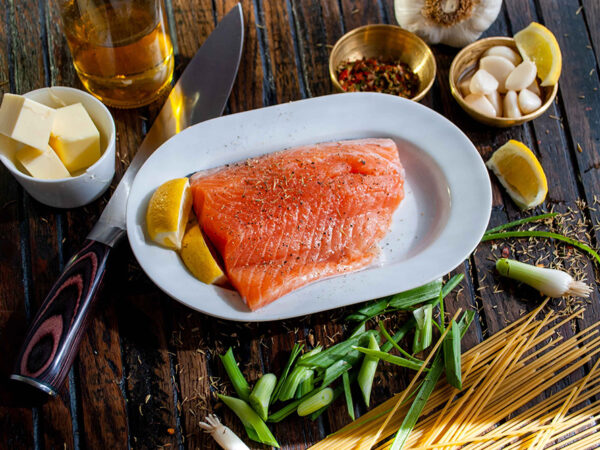Introduction
Are you curious about the Paleo diet and how it can benefit your health? Look no further! In this comprehensive beginner’s guide, we will explore the ins and outs of the Paleo diet, providing you with valuable information on what to eat and avoid. Whether you’re looking to lose weight, improve your digestion, or boost your energy levels, the Paleo diet offers a natural and sustainable approach to healthy eating. Let’s dive in!
What is the Paleo Diet?
The Paleo diet, also known as the Paleolithic or caveman diet, is inspired by the eating habits of our ancient ancestors. The core principle behind this diet is to consume foods that our bodies are genetically adapted to process and avoid those that are a product of modern agriculture and industrialization.
The foundation of the Paleo diet is rooted in the belief that our bodies are optimized to function on a diet similar to what our hunter-gatherer ancestors consumed. Proponents of the Paleo diet argue that our genetic makeup has not evolved sufficiently to adapt to the dietary changes introduced by the agricultural revolution.
What to Eat on the Paleo Diet
On the Paleo diet, you’ll focus on whole, unprocessed foods that nourish your body and provide optimal nutrition. Here are some key foods to include in your Paleo meal plan:
- Lean Meats and Fish: Embrace grass-fed beef, free-range poultry, and wild-caught fish as excellent sources of protein and essential nutrients.
- Fresh Fruits and Vegetables: Load up on a variety of colorful fruits and vegetables to obtain vitamins, minerals, and antioxidants that support overall health.
- Nuts and Seeds: Almonds, walnuts, chia seeds, and flaxseeds offer a satisfying crunch and are packed with healthy fats, fiber, and protein.
- Healthy Fats: Avocados, coconut oil, olive oil, and ghee provide nourishing fats that support brain function and help regulate hormones.
- Eggs: Whether scrambled, poached, or boiled, eggs are a versatile and nutritious staple of the Paleo diet.
- Herbs and Spices: Enhance the flavor of your meals with natural herbs and spices such as turmeric, garlic, oregano, and basil.
What to Avoid on the Paleo Diet
To fully embrace the Paleo lifestyle, it’s important to eliminate certain foods from your diet. Here are some items to avoid:
- Processed Foods: Say goodbye to processed snacks, sugary treats, and refined oils that are devoid of nutritional value and can contribute to inflammation.
- Grains: Cereals, bread, rice, pasta, and other grain-based products are excluded from the Paleo diet due to their high carbohydrate content.
- Legumes: Beans, lentils, peanuts, and soybeans are off-limits as they contain lectins and phytates, which can hinder nutrient absorption.
- Dairy Products: Milk, cheese, and other dairy products are omitted from the Paleo diet due to their potential to cause inflammation and digestive issues.
- Refined Sugars: Steer clear of artificial sweeteners, soda, and any foods that contain refined sugars, as they can lead to blood sugar spikes and energy crashes.
- Processed Vegetable Oils: Vegetable oils like soybean, corn, and canola oil are excluded due to their high omega-6 fatty acid content and potential inflammatory effects.
Frequently Asked Questions about the Paleo Diet
Q1: Is the Paleo diet suitable for everyone?
Yes, the Paleo diet can be suitable for most individuals. However, it’s important to consult with your healthcare provider before making any significant changes to your diet, especially if you have underlying health conditions or nutritional deficiencies.
Q2: Can the Paleo diet help with weight loss?
The Paleo diet has been associated with weight loss due to its emphasis on whole, nutrient-dense foods and the elimination of processed and high-calorie items. However, individual results may vary, and it’s crucial to combine a healthy diet with regular physical activity for optimal weight management.
Q3: Are there any risks associated with the Paleo diet?
While the Paleo diet promotes whole foods and eliminates many processed items, it may be low in certain nutrients such as calcium and vitamin D. It’s important to ensure you’re obtaining adequate amounts of these nutrients through other dietary sources or supplementation.
Q4: Can I follow the Paleo diet if I’m vegetarian or vegan?
The Paleo diet places a strong emphasis on animal proteins, which may pose challenges for vegetarians and vegans. However, it is possible to modify the Paleo diet to align with a vegetarian or vegan lifestyle by incorporating plant-based proteins like legumes, tofu, tempeh, and an array of fruits and vegetables.
Q5: How long does it take to see results on the Paleo diet?
Results on the Paleo diet can vary depending on individual factors such as starting weight, activity level, and adherence to the diet. Some individuals may experience noticeable changes in a matter of weeks, while others may take longer to see significant improvements in their health and well-being.
Q6: Can I eat out on the Paleo diet?
Eating out while following the Paleo diet may require some planning and modifications. Opt for restaurants that offer a variety of fresh and unprocessed options, such as grilled meats, salads, and vegetable sides. Don’t hesitate to ask about ingredient substitutions or cooking methods to ensure your meal aligns with the Paleo guidelines.
Conclusion
Embarking on the Paleo diet can be an exciting and transformative journey toward better health and well-being. By focusing on whole, unprocessed foods and eliminating items that can contribute to inflammation and nutrient deficiencies, you can optimize your nutrition and potentially experience benefits such as improved digestion, weight management, and increased energy levels.
Remember, the Paleo diet is not a one-size-fits-all approach, and it’s essential to listen to your body’s needs and make adjustments accordingly. Consult with a healthcare professional or registered dietitian to tailor the diet to your specific requirements.
Now that you have a comprehensive understanding of the Paleo diet and its principles, you can confidently embark on this ancient-inspired journey toward a healthier lifestyle!

